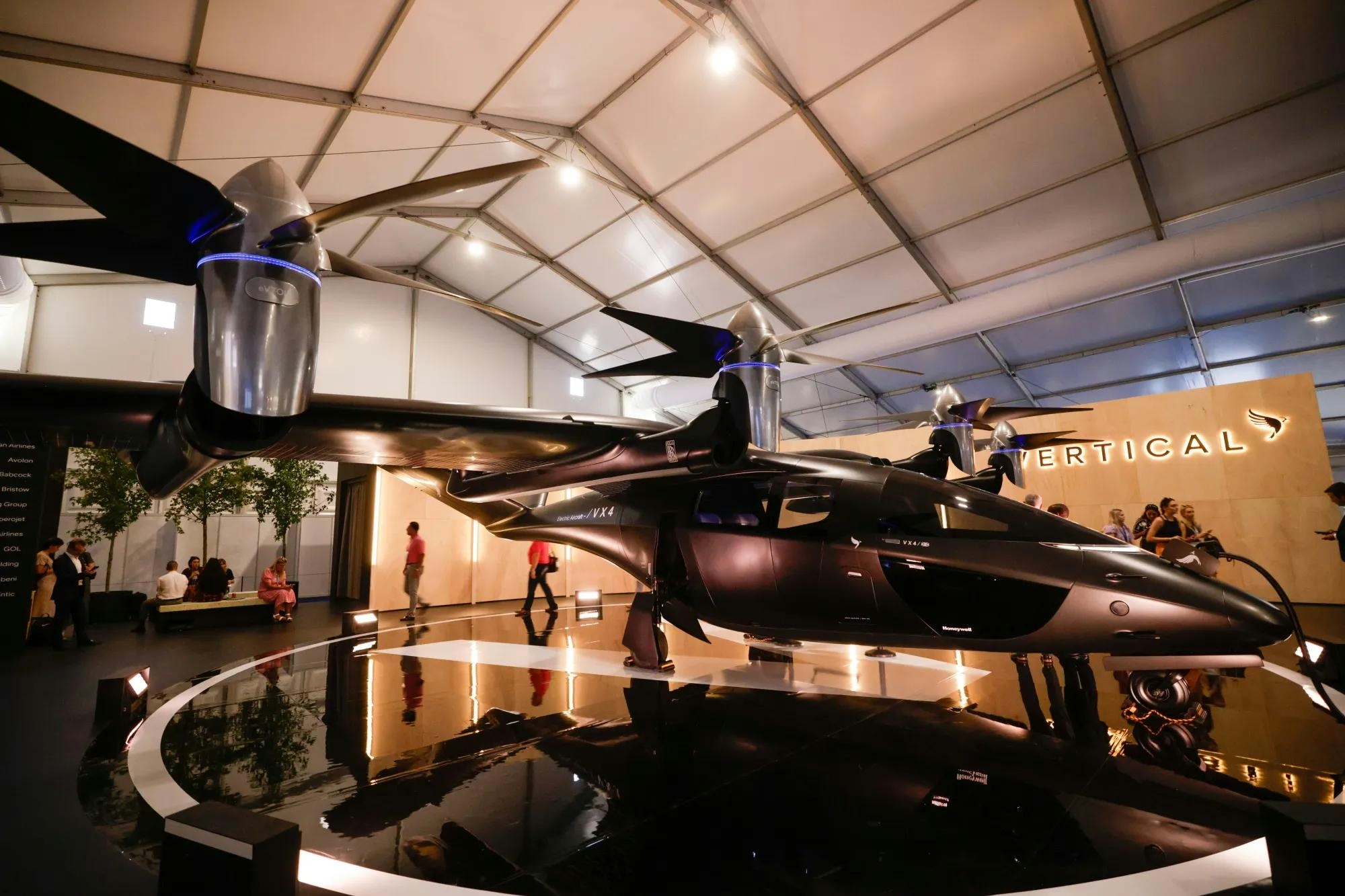AeroGenie — Ihr intelligenter Copilot.
Trends
Categories
Electric Flying Taxis to Be Developed at Cotswold Airport

Electric Flying Taxis to Be Developed at Cotswold Airport
Bristol-based Vertical Aerospace has announced its intention to manufacture all-electric air taxis at Cotswold Airport, with the goal of achieving commercial certification by 2028. The company plans to initially produce 25 VX4 flying taxis annually at the Gloucestershire site, marking a significant advancement in the development of urban air mobility within the United Kingdom.
Expansion and Production Plans
In addition to the manufacturing facility at Cotswold Airport, Vertical Aerospace is set to build a new battery production plant adjacent to its research and development centre in Avonmouth. This expansion aims to triple the output of battery packs essential for the VX4 aircraft, supporting the company’s long-term objective of scaling production to 900 aircraft and 45,000 battery units per year by 2035. While Cotswold Airport will serve as the initial production hub, the company is currently assessing other potential locations both within the UK and internationally for full-scale manufacturing, with a final decision expected next year.
The VX4 Aircraft and Certification Progress
The VX4 is an electric vertical take-off and landing (eVTOL) aircraft designed to carry up to six passengers over distances of approximately 100 miles (161 kilometers). Equipped with eight large propellers mounted on slender, aircraft-style wings, the VX4 offers quieter, emissions-free travel and the capability to land in urban environments, potentially revolutionizing city commuting.
Since unveiling the VX4 last year, Vertical Aerospace has transitioned from concept to practical development. Chief Executive Stuart Simpson emphasized the company’s confidence in the aircraft’s viability during a recent webinar in New York, stating, “This thing works. We know we can certify this.” The VX4 has already completed piloted hover flight tests, and the company anticipates concluding the final phase of its piloted flight programme by the end of the year. Securing certification from the UK Civil Aviation Authority remains a critical milestone in the project’s timeline.
Challenges and Market Dynamics
Despite the progress, the path to commercial electric flight faces considerable challenges. Regulatory complexities, substantial development costs, and the integration of new aircraft into existing urban infrastructure present significant obstacles. Vertical Aerospace has adopted a conservative financial approach, targeting a development budget of under $700 million to bring the VX4 to market by 2028. Market responses have been varied; while traditional aviation stakeholders have expressed skepticism, urban planners and technology investors have shown increasing enthusiasm. Competitors in the advanced air mobility sector are accelerating their own development efforts and forming strategic partnerships to maintain competitiveness.
On the international stage, regulatory environments are evolving rapidly. Notably, the United States has initiated a trial programme under the Trump administration to expedite the approval process for electric air taxis, a development that may influence global market dynamics and regulatory frameworks.
With its ambitious production plans and measured investment strategy, Vertical Aerospace is positioning itself as a leader in the emerging era of electric flight. The company remains optimistic that with technical milestones approaching and certification pathways becoming clearer, it is well placed to spearhead the next generation of sustainable urban transportation.

Emirates Unveils Cabin Design for New Boeing 777X

Eighteen Years On, the Airbus A380 Remains Central to a $34 Billion Airline

How a boom in luxury airline seats is slowing down jet deliveries

Navitaire Outage Attributed to Planned Maintenance

DigiYatra Debuts Outside Aviation at India AI Impact Summit

Vietnam Orders Strengthen Boeing’s Commercial Outlook

Airbus Signals Uncertainty Over Future A400M Orders

JobsOhio Awards $2 Million Grant to Hartzell Propeller for Innovation Center

Collins Aerospace Tests Sidekick Autonomy Software on YFQ-42A for U.S. Air Force CCA Program

How the Airbus A350-1000 Compares to the Boeing 777
